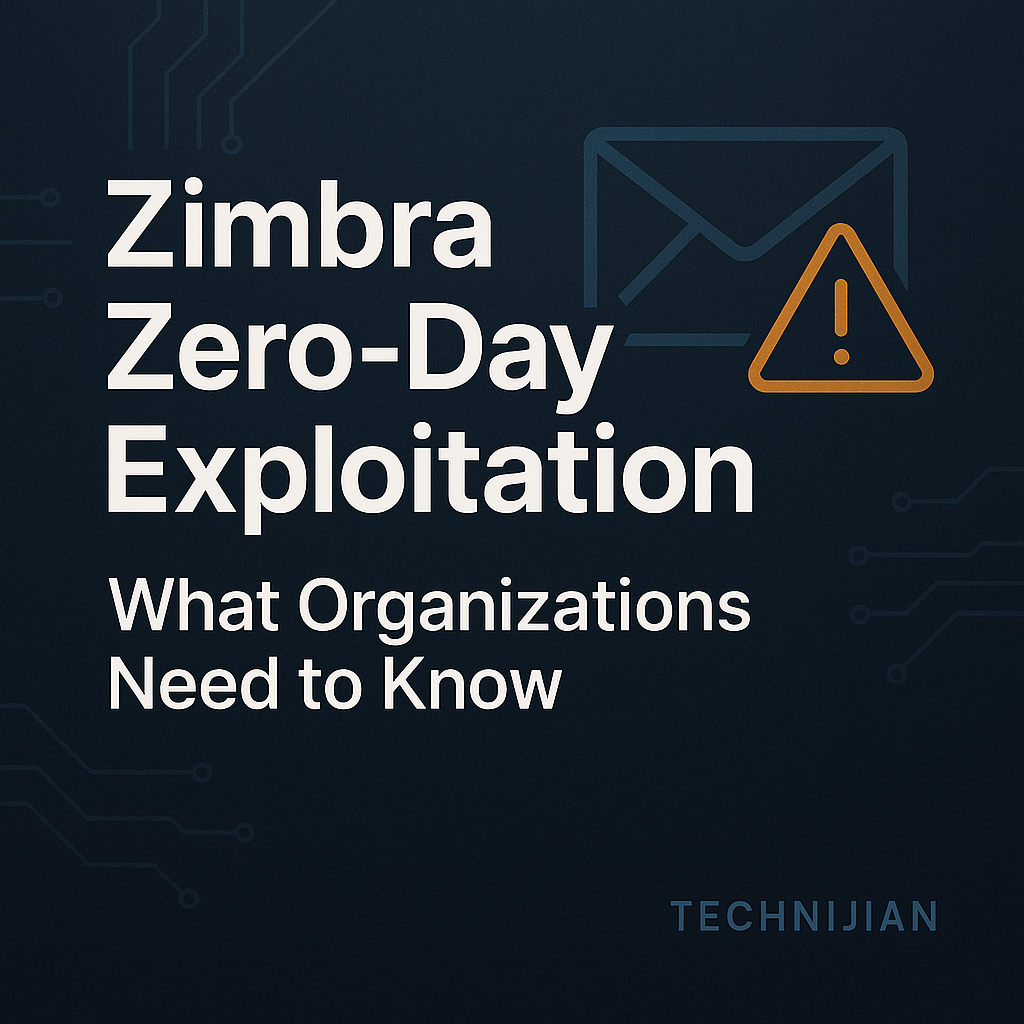
Zimbra Zero-Day Exploitation: What Organizations Need to Know
A recently discovered cyberattack campaign that exploited a zero-day vulnerability (CVE-2025-27915) in the Zimbra Collaboration Suite through malicious calendar invitation files (.ICS). The core exploit was a cross-site scripting flaw that allowed attackers to embed and execute sophisticated JavaScript payloads, primarily to steal user credentials and exfiltrate sensitive email data by establishing unauthorized forwarding rules. While attribution is challenging, the attack targeting a Brazilian military organization and the use of sophisticated tactics suggest potential state-sponsored espionage activity. The documents emphasize that organizations must immediately apply patches, review account filters for persistence, and implement enhanced network monitoring to detect the large, encoded calendar attachments used in the campaign. The second source introduces Technijian, an IT services provider, as a resource that offers security assessments and incident response to help businesses protect against such advanced threats, particularly in the Southern California region. ... Read More
